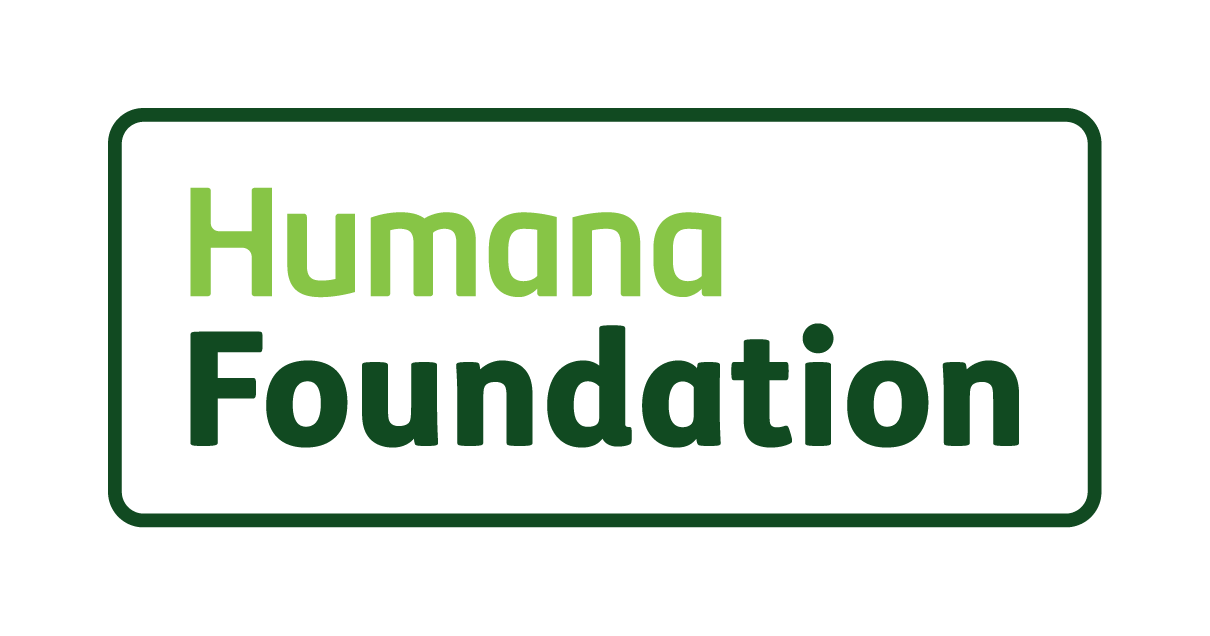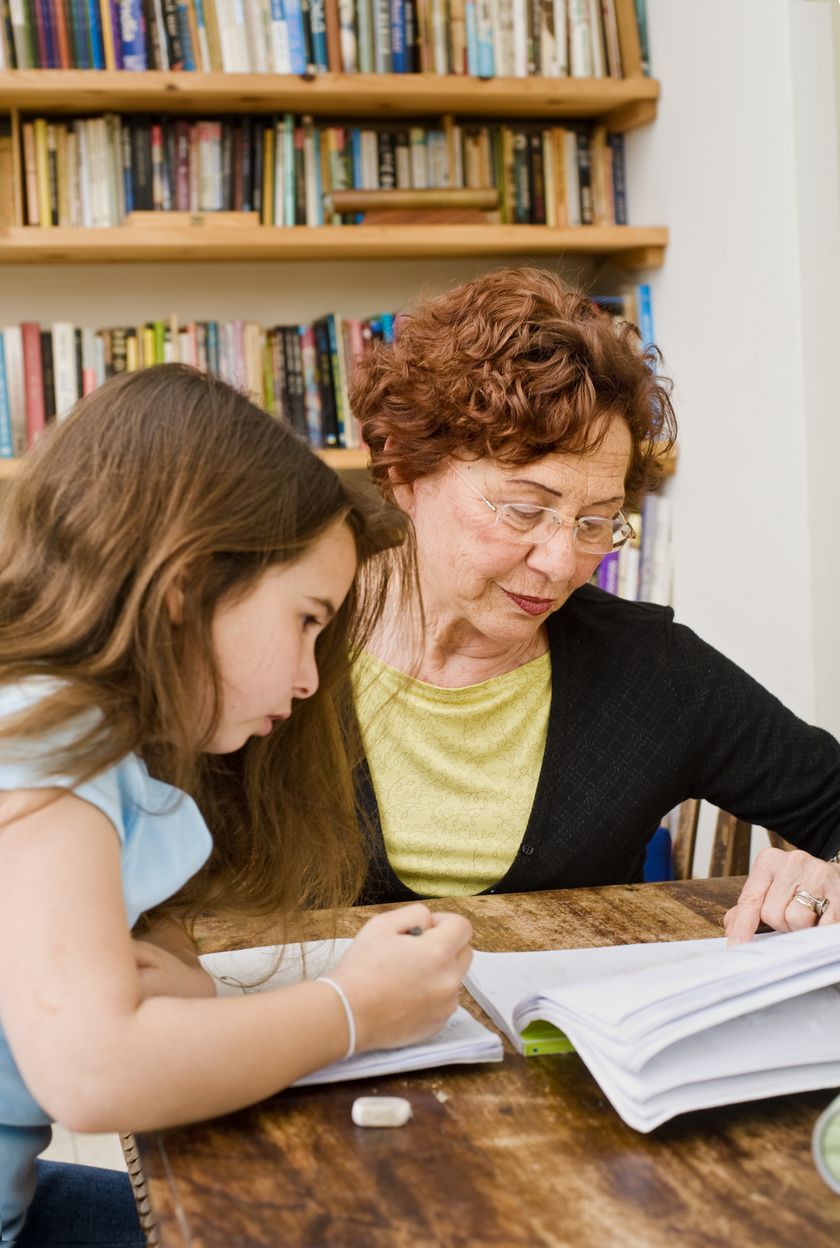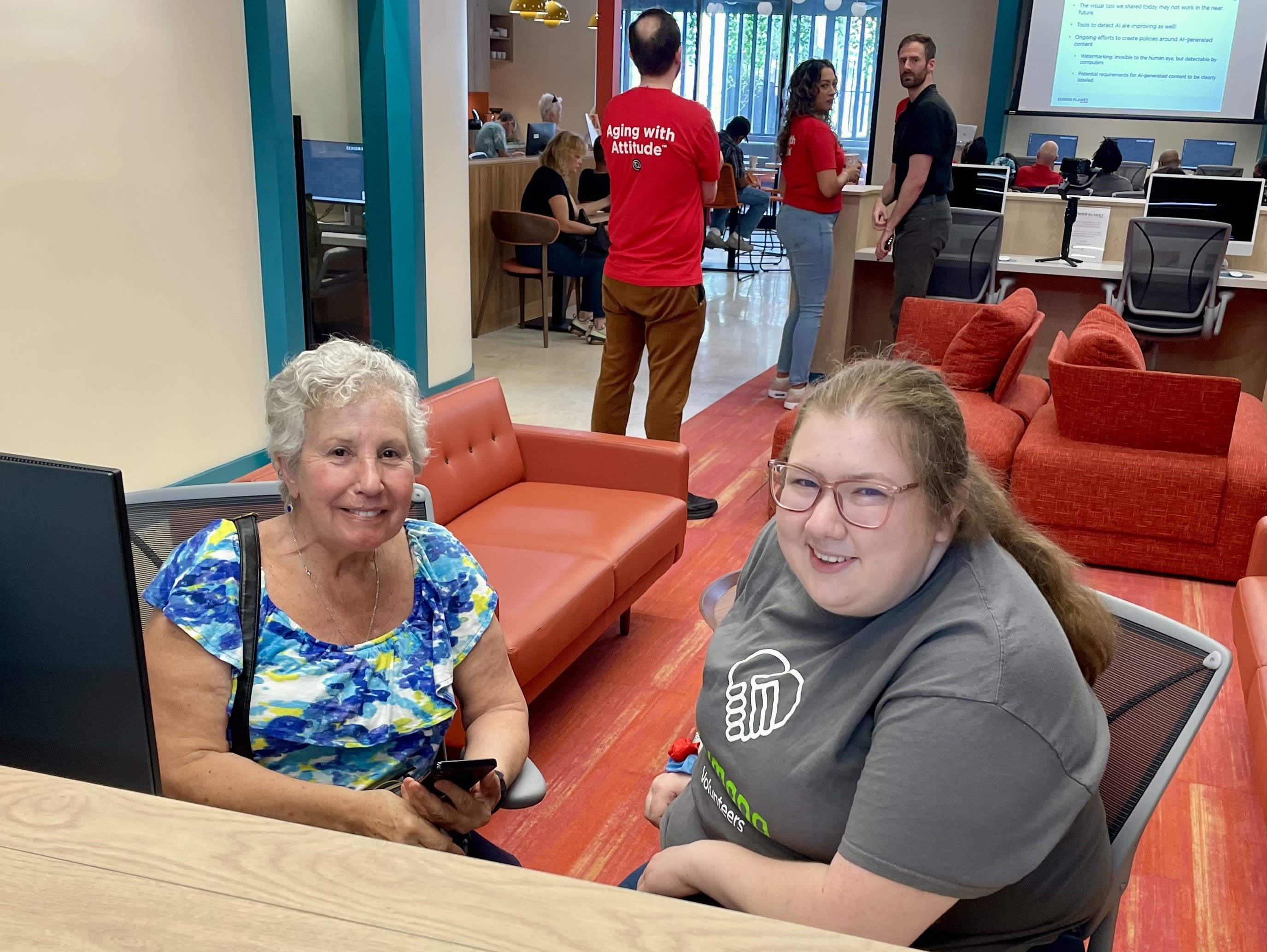Older Americans Are Not Alright.
What Should Philanthropy Do About It?

There has been much deserved attention to young people’s declining mental health. Far less has been focused on the poor mental health and loneliness experienced by many older adults. While the number of Americans with a mental health diagnosis has increased among all age groups in recent years, the largest increase has been in those 65 and older, rising more than 57% between 2019 and 2023, with anxiety and depression being the most prevalent. Older adults are also more isolated and lonely than people of other ages - with one in four considered socially isolated and 43% suffering from loneliness.
Social isolation and loneliness are strongly associated with increased risks for both mental and physical health conditions. Rates of depression, anxiety and suicide are higher among those who are lonely, and social isolation substantially increases a person’s risk of dementia and premature death from all causes. Both factors contribute significantly to cardiovascular disease.
This epidemic of loneliness and isolation, as declared in a U.S. Surgeon General’s advisory, is severely impacting America’s older population, which in turn has ripple effects on their families and communities that will only multiply as the Baby Boomer generation ages.
Despite the clear need for programs and interventions that foster social connectedness among seniors, there is a glaring gap in grant dollars directed their way. In fact, according to data from Grantmakers in Aging, less than 2% of philanthropic funding goes toward aging-related programs and services. One reason for that lack of philanthropic support is the misguided assumption that government programs cover older adults’ needs. While Medicare and Social Security provide healthcare and monetary assistance, they do not include many of the programs and services required to counter seniors’ mental health challenges.
Recognizing the need, the Humana Foundation - whose work is centered on health equity - is heavily investing in initiatives and research to combat loneliness and poor mental health and support seniors in living connected and healthy lives, particularly those who are marginalized and underserved.
There are numerous approaches to addressing these health disparities. There are, however, several fundamental considerations when working to improve older adults’ mental health and social connectedness.
Feeling Valued
Unfortunately, we live in a society that devalues older people. We like new, shiny things and often minimize or even belittle the experience and abilities of those who have lived long lives. These negative cultural messages can erode self-worth and significantly contribute to anxiety, depression, loneliness, and poorer physical and mental health.
Involving seniors in programs that employ their skills and foster a sense of purpose can help counter the effects of ageism. Providing opportunities to share their expertise or offer a helping hand to others can be extremely effective in boosting self-esteem and positive interactions. A good example is the Help Us Grow (H.U.G) reading program for which Humana Foundation funding has expanded a program utilizing older adults as reading tutors for at-risk elementary-age children in Florida. These types of intergenerational programs have been shown to benefit children academically and emotionally while reducing social isolation and providing greater life satisfaction and cognitive functioning for the older adult volunteers.
Similarly, programs that employ seniors as mentors or volunteers who provide rides or deliver food to those in need can protect against feelings of worthlessness and establish meaningful connections.
The Humana Foundation team volunteered at “Senior Planet Miami,” which is a facility from our partner Older Adults Technology Services (OATS) from AARP. The Center offers visitors free access to state-of-the-art technology equipment, Wi-Fi, classes, and multiple spaces for socializing.
The Humana Foundation team volunteered at “Senior Planet Miami,” which is a facility from our partner Older Adults Technology Services (OATS) from AARP. The Center offers visitors free access to state-of-the-art technology equipment, Wi-Fi, classes, and multiple spaces for socializing.
A Sense of Agency
Feelings of helplessness and vulnerability can impair mental health. The pandemic brought that to light when life went online, and many seniors felt further isolated, literally disconnected and fearful because of their lack of online access and digital skills. Even as the world has come back from the pandemic, reliance on digital tools has accelerated, making it increasingly essential to be digitally fluent. The work of Humana Foundation’s long-standing partner, Older Adults Technology Services (OATS) from AARP, providing digital literacy training to seniors has been shown to increase social connections, decrease feelings of loneliness and prevent worsening symptoms of depression. OATS’ programs, both online and in their Senior Planet Centers, not only give seniors a sense of agency and independence as they hone the skills needed to navigate our increasingly digital world but also give them a new community of fellow digital learners.
Integrated and Inclusive Services
While the stigma around mental health conditions has been reduced for certain populations, it is still quite pronounced among older adults, especially within Black and Brown, and veteran communities. Acknowledging that the problem exists, including isolation and loneliness, can be perceived as a weakness; therefore, services specifically directed at those issues may not be viewed favorably. Embedding social interactions within other services can help create less resistance. For example, we are currently testing a pilot program with researchers from the University of North Carolina that integrates both a meal delivery service and social engagement for older adults. There are in-person visits and wellness checks at the time of the meal delivery, along with follow-up calls from college student companions, offering intergenerational social interactions.
It is also incumbent upon philanthropists and nonprofits to consider how their existing programs could better serve older adults by understanding and overcoming barriers preventing services from reaching the aging population. That can include expanding communication channels to those most often used by seniors and program locations that ensure proximity for those with mobility issues or who lack transportation.
It’s time for philanthropists to address these health inequities by giving older adults the attention they deserve. As with all philanthropic efforts, listening to and being present for the people we serve is essential. By focusing on understanding the particular needs of diverse seniors, we can develop and fund programs that will enhance their social connections and improve their mental health, and in doing so, bring about healthier families and communities.
This content was paid for and created by the Humana Foundation. The editorial staff of The Chronicle had no role in its preparation. Find out more about paid content.





